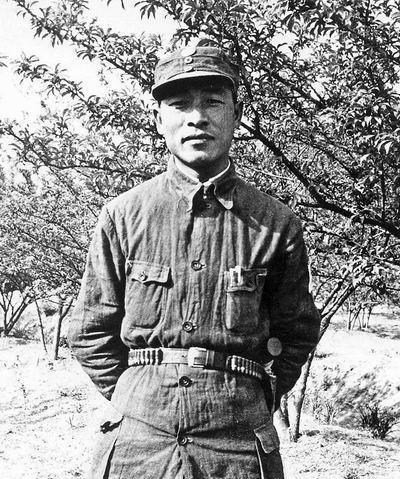During the Red Army period, Wang Ping was transferred to partner with Peng Xuefeng, but he felt that it was not good to work, and recommended Zhang Aiping to partner with him.

Peng Xuefeng was a veteran general who had served as the political commissar of the 4th Division of the Red Third Army in 1933, while Wang Ping served as the regimental political commissar of the 11th Regiment of the 4th Division.
Later, Peng Xuefeng was wounded and left the front line, and Huang Kecheng took over the post of political commissar of the division.
After the Zunyi Conference, the Red Third Army was reorganized into two divisions plus an independent regiment, the fourth division commander Zhang Zongxun, the political commissar Huang Kecheng, the political department director Zhang Aiping, and Wang Ping still served as the political commissar of the Red Eleventh Regiment. At this time, Peng Xuefeng returned to the unit and served as the commander of the Fifth Division.
After crossing the Chishui River, the troops streamlined their organization, the Red Third Army abolished the division to the establishment, the division leading cadres served in the regiment, Zhang Zongxun served as the commander of the 10th regiment, Peng Xuefeng served as the commander of the 13th regiment, and Wang Ping served as the director of the political office of the eleventh regiment at this time, assisting the political commissar Zhang Aiping.
After the meeting, the superiors made Wang Pingsheng the political commissar of the Red 13 Regiment, and the leader of the 13 Regiment was Peng Xuefeng. Peng Xuefeng is his old superior, no matter the level of education, or the level of seniority is more than himself, he feels that he is not suitable to serve as the political commissar of the regiment.
And more importantly, during the Red Army period, the political commissar could make final decisions on major issues and had considerable power. If he were to serve as political commissar, he felt that it was not convenient for him to make a final decision on major issues.
Later, with the war situation, the political commissar's final decision was abolished. However, this is all a later story.
He did not serve as the political commissar of the Thirteenth Regiment, so he recommended Zhang Aiping to serve, and Zhang Aiping had better conditions than himself in all aspects and also served as a division-level cadre. In this way, he remained in the Eleventh Regiment and continued to serve as political commissar.
In the later years of the war, they all grew into senior generals in the army. It's just a pity that Peng Xuefeng died prematurely, otherwise it would have been the rank of great general. However, he later became one of the military men.